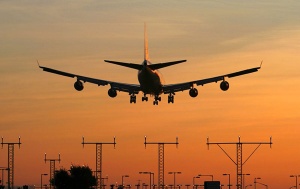BAA losses widen but Gatwick disposal on track

BAA has highlighted the impact of the recession on air travel by reporting losses for the first half of 2009 widening from £135.3m to £545.7m.
The airport operator also confirmed it remained in talks with several bidders over Gatwick but warned that it would not proceed with a sale unless the right was right.
Colin Matthews, BAA chief executive, said: “There’s more than one party interested and talks are carrying on. If we can’t sell it, we won’t but I hope and think we will.”
Passenger numbers fell 7.4% year-on-year to 55.2m in the six months as both leisure and business customers pulled the reigns on travel.
All three of its London airports experienced falls. Heathrow proved the most resilient, with passenger numbers falling just 3.8% as it benefited from its position as a global hub for long-haul travel.
Stansted was worst hit, with passenger numbers falling 14.4% as airlines such as Ryanair cut capacity to offset slackening demand.
ADVERTISEMENT
Despite the falling numbers, revenues rose 12.8% to £1.2bn on higher landing charges and increased consumer spending at airport shops. Net retail income per passenger, a key measure for BAA, increased by 7.3% to £4.72.
But BAA’s increasing debt, linked to its take-over by Ferrovial, plus exceptional costs and a pension deficit led to overall losses growing to £545.7m.
BAA must repay £1bn of its existing bank debt in March next year, and the sale of Gatwick would greatly help the refinancing.
Ferrovial has been ordered by the UK Competition Commission to sell three of its seven UK airports within two years – Gatwick, Stansted and either Glasgow or Edinburgh.
But its expectations for a potential Gatwick sale have been dogged by the financial crisis, which has made it more difficult for bidders to raise bank debt.
A consortium led by Manchester Airport Group and Borealis, the Canadian infrastructure fund, has refused to raise its final bid of about £1.4bn, leaving a gap of at least £100m to the price being sought by Ferrovial.

